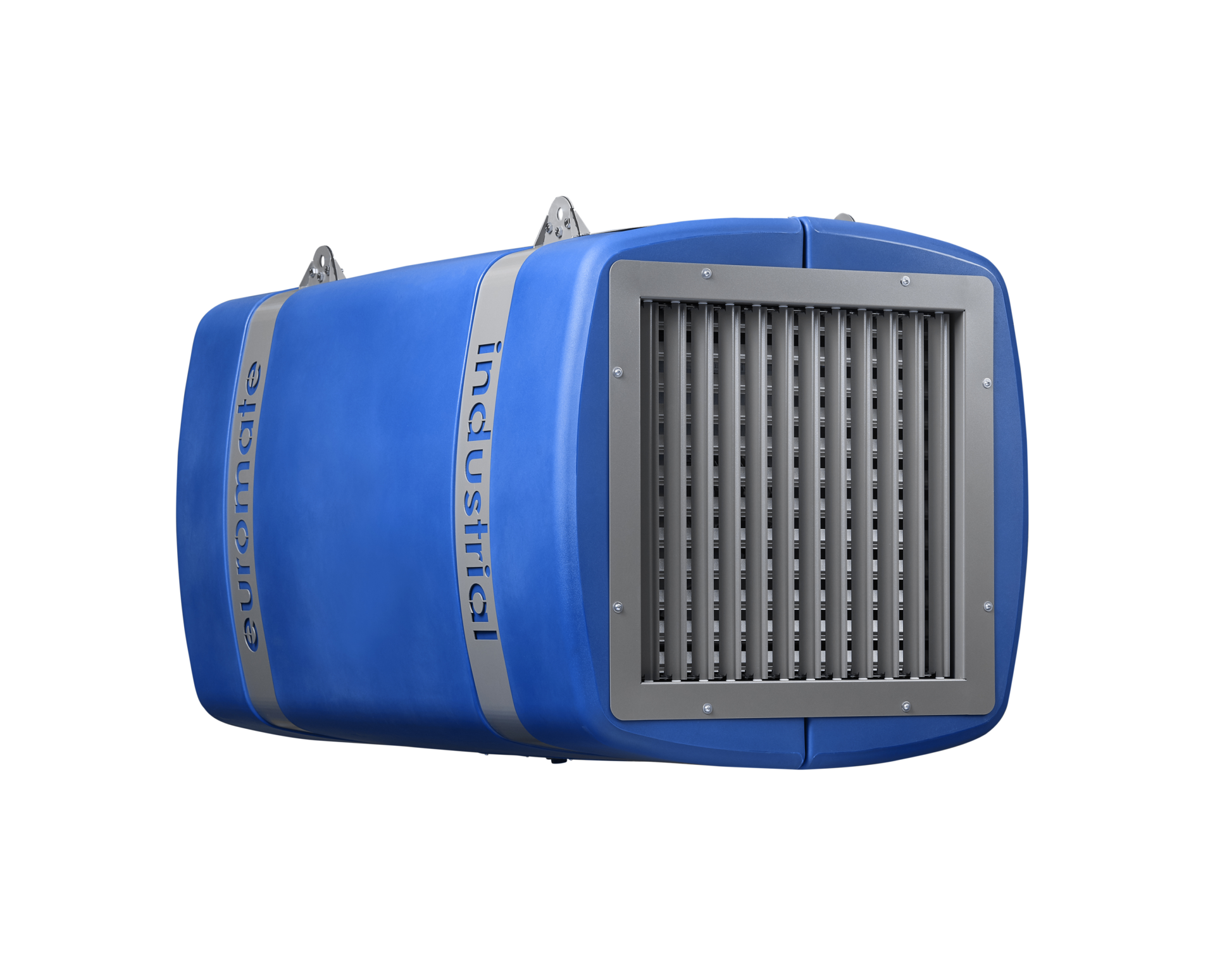Do you require clean, fresh air for your office or manufacturing facility? Look nowhere else! This article investigates the availability of air purifiers made specifically for places like these. This article (Are There Air Purifiers Specifically Designed For Commercial Or Industrial Spaces) will explain the benefits of air purifiers made to fulfill the needs of commercial or industrial settings if you’ve been looking for a practical way to improve the air quality in your workspace. Yes, there are air purifiers made expressly for use in industrial and commercial settings. Due to their size, high occupancy rates, and different pollutants present, these facilities frequently provide special air quality concerns. It’s essential to comprehend the necessity for air purification in these areas if you want to provide a secure and hygienic atmosphere for staff, clients, and guests. This article will examine the effects of poor indoor air quality, the unique difficulties encountered in commercial and industrial settings, and the various air purifier types that are appropriate for these settings.
Impact of Poor Indoor Air Quality
People’s health and wellbeing can be significantly impacted by poor indoor air quality in commercial and industrial settings. Allergies, respiratory conditions, and infections are just a few of the health concerns that can arise when the air is polluted and contaminated. This may lead to higher absenteeism, lower productivity, and a general reduction in staff morale. Furthermore, poor indoor air quality can have a detrimental impact on clients, resulting in a decline in satisfaction and possible business loss. Because of this, it is crucial to address and enhance the indoor air quality in these areas.
Specific Challenges in Commercial and Industrial Spaces
Regarding air quality, commercial and industrial spaces have unique difficulties. There is a greater concentration of individuals in one place because these venues are frequently larger and have higher occupancy rates than residential neighborhoods. As a result, there may be a higher load of toxins released into the air from several sources, including processes, machinery, and human activity. Additionally, certain pollutants and contaminants that are not normally present in residential surroundings, such as volatile organic compounds (VOCs), chemicals, and gases, may also be present in commercial and industrial locations. To properly handle these difficulties and the particular requirements of these places, specialist air purification technologies are required.
Types of Air Purifiers Suitable for Commercial and Industrial Spaces
High-Efficiency Particulate Air (HEPA) Filters
Dust, pollen, pet dander, and other airborne pollutants, such as particle matter, can all be effectively removed using HEPA filters. These filters have a high effectiveness rate and can effectively catch particles as small as 0.3 microns, resulting in clean, fresh air. Due to its great filtration effectiveness, HEPA filters are a popular choice for commercial and industrial areas. When selecting a HEPA filter air purifier, it is crucial to take into account the space’s size and air exchange rate requirements because these aspects can affect the system’s overall efficacy.
Activated Carbon Filters
Filters made of activated carbon are intended to purge the air of odors, gases, and chemical contaminants. These filters may collect and trap a variety of volatile organic compounds (VOCs) and other odorous substances since they are built from processed carbon materials with a high surface area. In commercial and industrial settings where it is necessary to get rid of specific odors and chemical contaminants, activated carbon filters are frequently employed. For optimum performance, it is crucial to take into account the precise pollutants present in the area and select an activated carbon filter with the right adsorption capacity.
Electrostatic Precipitators
Electrostatic charges are used in electrostatic precipitators to draw in and collect airborne particles. These machines contain charged plates that draw in particles, eliminating them from the air in an efficient manner. Electrostatic precipitators are ideal for commercial and industrial environments where a variety of contaminants may be present since they are very effective at eliminating both large and minute particles. Electrostatic precipitators must be periodically cleaned and maintained, nevertheless, to preserve their effectiveness.
Ultraviolet Germicidal Irradiation (UVGI) Systems
UVGI systems employ ultraviolet light to destroy airborne germs, viruses, and mold spores. By sanitizing the air, these systems are very successful at enhancing indoor air quality and lowering the risk of airborne diseases. Healthcare facilities, laboratories, and other high-risk locations frequently use UVGI systems. To achieve maximum germicidal efficacy, it’s crucial to take into account the space’s size and the UV light’s required intensity when selecting a UVGI system for commercial and industrial settings.
Ozone Generators
Ozone generators are made to create ozone, a highly reactive gas that can destroy bacteria and viruses in addition to neutralizing odors. By changing airborne oxygen molecules into ozone molecules, these generators produce ozone. To eliminate lingering odors and purify the air in commercial and industrial settings, ozone generators are frequently utilized. while present in high concentrations, ozone can be detrimental to human health, hence appropriate safety precautions and recommendations must be followed while using ozone generators.
Considerations for Choosing Air Purifiers for Commercial and Industrial Spaces
Air Exchange Rate Requirements
The number of times the air in a space is replaced in a specific amount of time is referred to as the air exchange rate. Due to their higher occupancy and pollutant levels, commercial and industrial environments often require a higher air exchange rate than residential ones. It is crucial to take into account the suggested air exchange rate for the particular area and select an air purifier that can accomplish the recommended rate.
Size and Capacity of the Space
When selecting an air purifier, it’s crucial to take the room’s size and capacity into account. Taking into account elements like the space’s size, the number of inhabitants, and the existence of contamination sources, the purifier should be able to thoroughly clean the air in the entire area. The air purifier must be properly sized to operate at its best performance and efficiency.
Specific Contaminants and Pollutants
It may be necessary to handle specific toxins and pollutants that are present in various commercial and industrial environments. It’s crucial to discover the exact pollutants in the area and pick an air purifier that can get rid of or significantly reduce those irritants. An air purifier with activated carbon filters, for instance, can be more appropriate if the area is exposed to chemical contaminants.
Noise Levels
In commercial and industrial settings, where a calm and tranquil environment is frequently desired, noise levels can be an issue. It’s critical to select an air purifier with a low noise output, especially in areas where patrons or employees must concentrate or do business. Look for air purifiers that offer performance without sacrificing quiet operation.
Maintenance and Filter Replacement
To maintain an air purifier’s effectiveness, routine maintenance and filter replacement are necessary. It’s crucial to pick a system with conveniently accessible filters and easy maintenance. When selecting an air purifier for commercial and industrial areas, keep filter replacement frequency and cost in mind.
Energy Efficiency
For commercial and industrial locations where large-scale air purification systems may be necessary, energy efficiency is a crucial factor. Look for energy-efficient air purifiers that can alter their operation depending on the room’s occupant count and air quality. Energy-efficient air purifiers can assist save energy expenses and lessen their negative effects on the environment.
Cost and Budget Considerations
When selecting air purifiers for commercial and industrial areas, cost and budget considerations are crucial elements to bear in mind. It’s crucial to strike a balance between the system’s initial expense and its long-term savings and benefits. When choosing a choice, take into account elements including the system’s longevity, upkeep requirements, and the price of replacement filters.
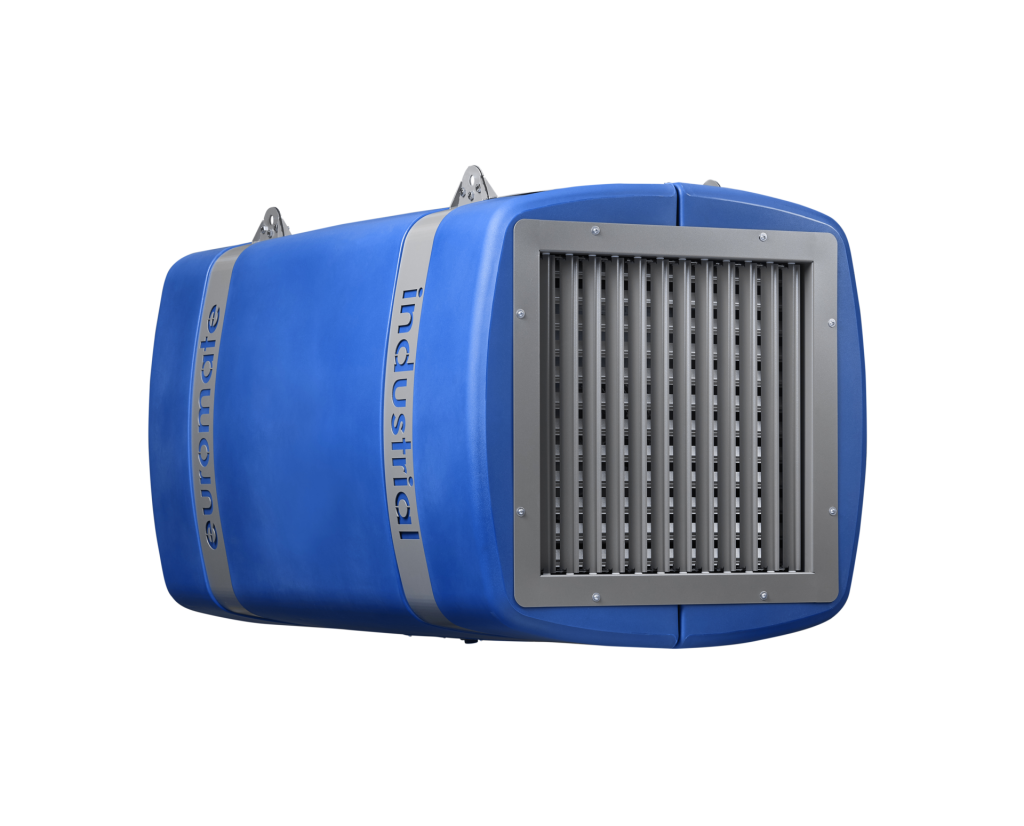
Installation and Positioning of Air Purifiers in Commercial and Industrial Spaces
Centralized Vs. Distributed Systems
One of the first choices to be made when installing air purifiers in commercial and industrial settings is whether to go with a centralized or distributed system. One air purifier is used in a centralized system, which is linked to the current HVAC system to provide thorough air purification over the entire area. On the other hand, distributed systems use numerous air purifiers that are carefully deployed across the area to ensure adequate coverage. The decision between centralized and distributed systems is influenced by the layout, size, and particular air purification requirements of the space.
Placement for Optimal Airflow and Filtration Efficiency
It is essential to position air purifiers properly for the best airflow and filtering performance. Positioning air purifiers where they can capture and clean the most contaminated air is important. Position the air purifiers so that they are in locations with the best airflow, such as those that are close to windows or doors. To achieve effective pollution removal, it could also be required to take into account where you put your air purifiers in respect to potential sources of contamination.
Sizing and Quantity Requirements
To guarantee optimal air filtration in commercial and industrial environments, proper air purifier sizing and quantity are crucial. The number of air purifiers required will depend on the size of the area and the required air exchange rate. Additionally, the structure of the space, the existence of distinct rooms or sections, and the particular air purification requirements will all affect how many air purifiers are needed. To evaluate the proper dimensions and quantity needs for the space, it is crucial to consult a professional or an expert in air purification.
Integration with Existing HVAC Systems
A complete and effective air purification solution may be offered by integrating air purifiers with current HVAC systems. Before being circulated throughout the area, the air can be filtered and cleaned by connecting the air purifiers to the HVAC system. Through this integration, the air purifiers are guaranteed to function in concert with the current ventilation system and contribute to the upkeep of healthy indoor air quality. To ensure effective integration with current systems, it is crucial to speak with HVAC and air purification experts.
The Role of Air Purifiers in Combating Different Contaminants in Commercial and Industrial Spaces
Dust and Particulate Matter
HEPA air purifiers are very good at catching and getting rid of dust and other airborne particles. These filters have the ability to capture small particles, such as pollen and allergens, hence reducing allergic reactions and respiratory problems in both clients and staff. A cleaner and healthier environment can be created by often using air purifiers with HEPA filters, which can considerably improve indoor air quality.
Chemical Pollutants
Chemical pollution from cleaning products, paints, and industrial processes are frequently more prevalent in commercial and industrial settings. It is the purpose of air purifiers with activated carbon filters to eliminate this kind of air pollution. A safer and healthier workplace can be achieved by using activated carbon filters, which have a high adsorption capacity and can efficiently trap and neutralize a variety of pollutants.
Volatile Organic Compounds (VOCs)
Volatile organic compounds (VOCs) are gases that are emitted from a variety of products, including furniture, building supplies, and cleaning agents. These substances may be harmful to people’s health and indoor air quality. VOCs can be effectively removed from the air by air purifiers with activated carbon filters, reducing exposure and fostering a healthier environment. Additionally, UVGI systems can add another layer of defense by irradiating germs to neutralize VOCs by germicidal irradiation.
Mold and Mildew
In commercial and industrial settings, mold and mildew are frequent issues, particularly in regions with high humidity or water leaks. These microbes have the ability to discharge spores into the air, which can cause allergies and respiratory problems. Mold spores are effectively captured and killed by HEPA filters and UVGI systems in air purifiers, which helps to stop their growth and spread. Regular use of these air cleaners can aid in reducing and getting rid of mold and mildew in the office.
Bacteria and Viruses
In commercial and industrial settings, especially those with a high population density, airborne bacteria and viruses can be a serious threat. UVGI air purifiers are extremely successful at eliminating germs and viruses, lowering the chance of contracting an infection through the air. These systems employ UV light to inactivate and stop the reproduction of bacteria by destroying their DNA. UVGI systems can contribute to maintaining a safe and healthy environment for clients and staff.
Odors and Fumes
In industrial and commercial settings, lingering scents and pollutants can be a serious problem. In order to create a fresh and clean environment, air purifiers with activated carbon filters and ozone generators are excellent at neutralizing odors and pollutants. Odor-causing substances can be absorbed and trapped by activated carbon filters, whereas ozone generators can degrade and get rid of odors at the molecular level. For best results, it’s critical to accurately identify the odor’s source and use the right air purifying method.
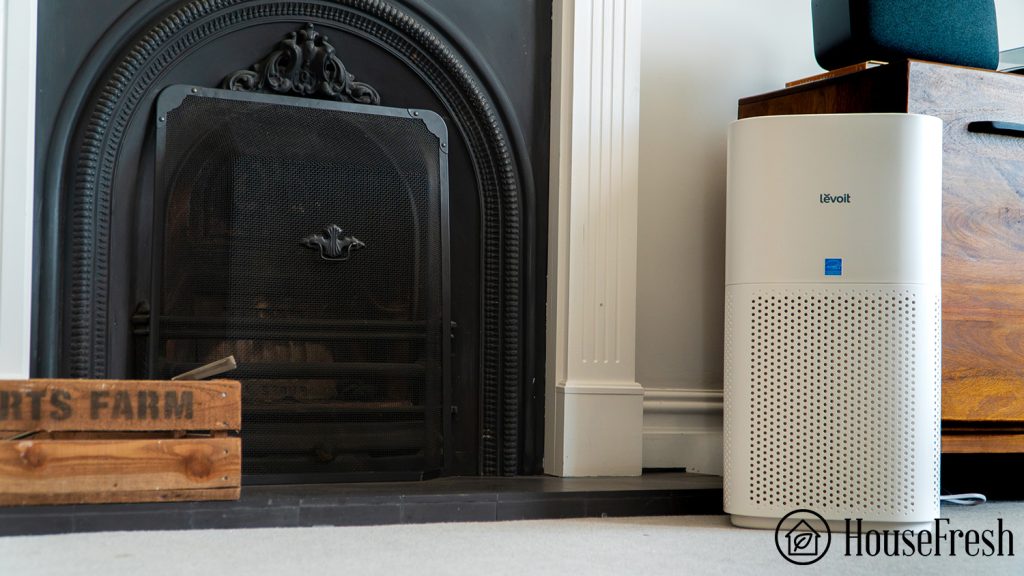
Regulations and Standards for Air Purifiers in Commercial and Industrial Spaces
Occupational Safety and Health Administration (OSHA) Standards
To guarantee safe and healthy working conditions, the Occupational Safety and Health Administration (OSHA) establishes rules and regulations. OSHA does not have explicit standards for air purifiers, however they do offer recommendations for ventilation and indoor air quality. OSHA rules and guidelines should be followed in commercial and industrial settings to guarantee that air purifiers meet the required safety requirements.
American Society of Heating, Refrigerating and Air-Conditioning Engineers (ASHRAE) Guidelines
Indoor air quality is one of many HVAC-related topics for which the American Society of Heating, Refrigerating and Air-Conditioning Engineers (ASHRAE) publishes guidelines and standards. Standards developed by ASHRAE, such ASHRAE 62.1 and ASHRAE 52.2, address ventilation needs and air filtering effectiveness. To guarantee that the air purifiers fulfill the required criteria, commercial and industrial environments should follow ASHRAE rules.
Environmental Protection Agency (EPA) Standards
The Environmental Protection Agency (EPA) establishes guidelines and rules to safeguard the environment and public health. Regarding indoor air quality and using air purifiers, the EPA offers advice and information. Commercial and industrial buildings need to be sure the air purifiers they select adhere to EPA requirements and guidelines.
Local Building Codes and Regulations
Commercial and industrial spaces must adhere to local building codes and regulations in addition to national norms and requirements. Specific standards for ventilation systems and interior air quality may be included in these rules and regulations. To make sure that all applicable laws are being followed, it is crucial to check with local authorities and building code inspectors.
You may also like to read the article: What Is The Coverage Area Of A Typical Home Air Purifier?
Case Studies and Success Stories of Air Purifiers in Commercial and Industrial Spaces
Real-World Examples of Improved Indoor Air Quality
There are countless cases from the real world when installing air purifiers improved indoor air quality significantly. For instance, installing HEPA filter air purifiers across a manufacturing facility with high levels of particulate matter in the air led to a substantial decrease in employee respiratory problems and an improvement in overall productivity. Similar to this, an air purifier with activated carbon filters was placed in a restaurant with lingering cooking scents, which significantly reduced the odors and increased customer satisfaction.
Financial and Productivity Benefits
For commercial and industrial spaces, improved indoor air quality can have a number of positive financial and productivity effects. Businesses can see a decrease in absenteeism and an improvement in general productivity by eliminating respiratory problems and allergies among their workforce. A clean and healthy workplace can also improve employee morale and job satisfaction, which lowers turnover rates. Additionally, better interior air quality can draw more business and improve the overall customer experience, which could lead to higher customer satisfaction and potential revenue development.
Customer Testimonials
Customer reviews can be a useful resource for learning about the efficacy of air purifiers in commercial and industrial settings. Reassurance and confidence in the choice to invest in air purifiers can be gained from positive testimonies from companies that have noticed noticeable improvements in indoor air quality. These testimonies might also shed light on particular problems faced by various sectors and how air purifiers have successfully solved those problems.
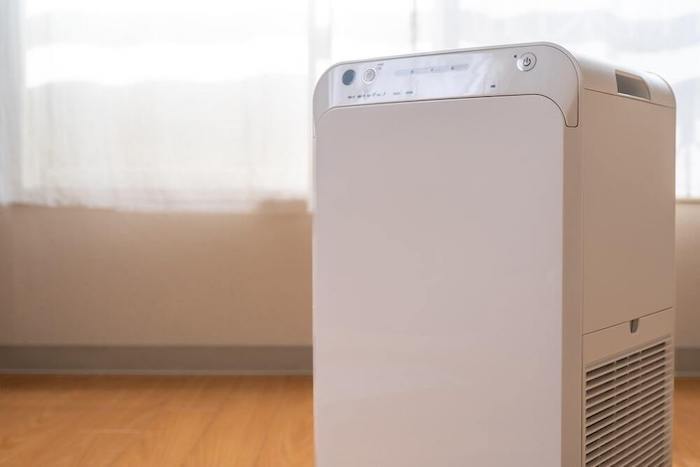
Common Misconceptions about Air Purifiers in Commercial and Industrial Spaces
Air Purifiers as a Complete Solution
Although they can greatly enhance indoor air quality, air purifiers should not be viewed as a one-stop solution for all air quality problems. Maintaining healthy interior air quality also requires proper source management, ventilation, and routine cleaning. In order to address indoor air pollution, an all-encompassing strategy should include the usage of air purifiers.
Neglecting Regular Maintenance
For air purifiers to remain effective, frequent maintenance is necessary. Regular maintenance, such as filter replacement and cleaning, should not be neglected because it can have a negative impact on indoor air quality and performance. To keep the air purifiers in top shape, it’s critical to adhere to the manufacturer’s maintenance instructions and create a regular maintenance program.
Ineffectiveness against Severe Contaminants
Despite the fact that air purifiers are efficient at removing a variety of contaminants, such as dust, pollen, scents, and chemicals, there are certain particularly harmful ones that could need specialist care. Air purifiers might not be completely efficient, for instance, against asbestos or some harmful chemicals. To choose the best course of action in such situations, it is vital to consult with experts and specialists.
High Energy Consumption
The idea that air purifiers use excessive amounts of electricity and raise energy prices is a widespread one. But thanks to technological improvements, many contemporary air purifiers are built with energy efficiency in mind. It’s crucial to pick air purifiers with energy-saving features and ENERGY STAR certification. Additionally, choosing air purifiers with programmable timers and adjustable fan settings might aid in reducing energy consumption.
Choosing the Right Supplier for Air Purifiers in Commercial and Industrial Spaces
Experience and Expertise
It’s crucial to take their experience and knowledge of the market into account when selecting a supplier of air purifiers for commercial and industrial settings. Look for vendors who have a history of delivering top-notch air purification products and who are knowledgeable about how to handle the particular problems that arise in commercial and industrial settings.
Product Range and Customization Options
Think about the supplier’s product selection and customization possibilities. The air purification needs of various commercial and industrial areas may differ, so it’s crucial to pick a supplier that provides a range of choices to satisfy those needs. This might involve various air purifier models, filtration choices, and integration abilities.
Technical Support and After-Sales Service
When it comes to air purifiers in commercial and industrial environments, technical assistance and after-sales service are essential. Seek out vendors who provide thorough technical support, such as installation assistance, troubleshooting advice, and maintenance advice. When making a choice, also take into account the accessibility of replacement filters and the warranty policy of the seller.
Reputation and Customer Reviews
To learn more about the caliber of the supplier’s goods and services, read client testimonials and research the supplier’s reputation. Positive customer feedback might reveal important details about the supplier’s dependability and level of client pleasure.
Price and Warranty
A source of air purifiers should be chosen after considering price and warranty. Comparing pricing from various vendors and taking into account the entire worth of the goods and services offered. Check the warranty policy as well to make sure the air purifiers are covered for a reasonable amount of time and that the seller offers sufficient customer service in the event of any problems.
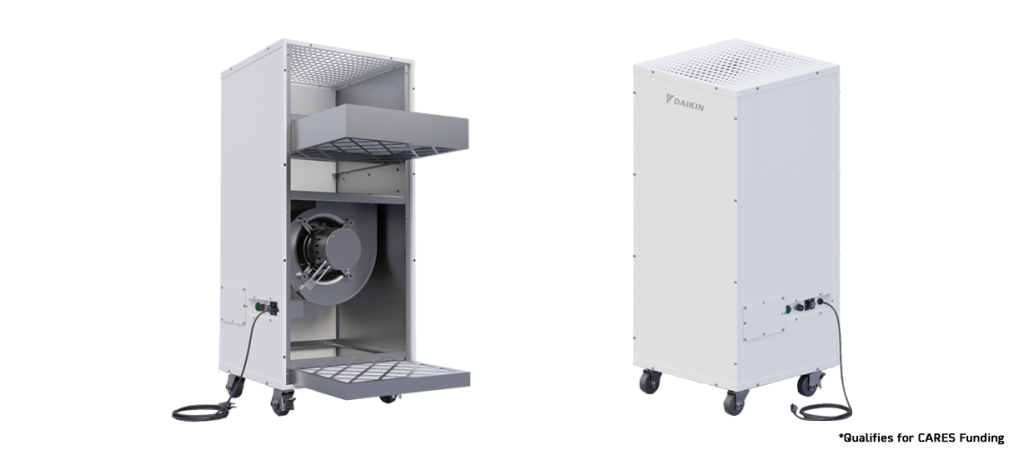
Conclusion (Are There Air Purifiers Specifically Designed For Commercial Or Industrial Spaces)
To improve indoor air quality and create a safe and healthy workplace for staff, clients, and visitors, air filtration is crucial in commercial and industrial buildings. There are various types of air purifiers available, each of which targets particular pollutants and toxins. Examples include those with HEPA filters, activated charcoal filters, electrostatic precipitators, UVGI systems, and ozone generators. Air exchange rate needs, room size and capacity, particular contaminants, noise levels, maintenance and filter replacement, energy efficiency, cost and budget, and rules and standards should all be taken into account when selecting an air purifier. For optimum airflow and filtering effectiveness, air purifier installation, location, and integration are essential. The usage of air purifiers is essential in the fight against various pollutants, such as dust, chemical pollutants, VOCs, mold, bacteria, viruses, and odors. To guarantee that the air purifiers meet the necessary safety and quality requirements, compliance with rules and standards, such as those established by OSHA, ASHRAE, EPA, and local building codes, is crucial. Examples of the effectiveness and advantages of air purifiers in commercial and industrial environments can be found in case studies, success stories, and customer reviews. Making an informed decision requires addressing common misconceptions and selecting the best provider based on experience, product range, customization possibilities, technical support, reputation, price, and warranty. Businesses may make their workplaces healthier and more productive by investing in air purifiers made for commercial and industrial settings.
Recommendations: Nuwave OxyPure ZERO Smart Air Purifier


